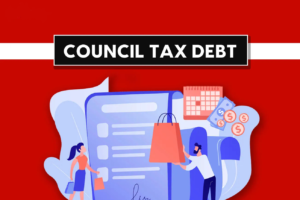Did you know you could be overpaying your council tax? Many UK households are eligible for a council tax rebate but need to know how to claim it. Understanding how to get a council tax rebate can significantly save your annual bills.
In this post, we’ll explain council tax rebates, who qualifies for them, and how you can claim a council tax refund to reduce your expenses. We’ll provide a step-by-step guide to help you identify if you’re eligible and walk you through the application process.
What Is a Council Tax Rebate?
Understanding Rebates and Why They Matter
A council tax rebate is a refund or reduction in the council tax you owe to your local authority. If you’ve been overpaying or your circumstances have changed, you might be eligible to claim a council tax refund, putting money back into your pocket.
Understanding how to get a council tax rebate can help you manage your finances more effectively and ensure you pay only what is necessary.
Several common scenarios might lead to a council tax rebate:
- Changes in Property Band: If your property has been revalued and placed in a lower council tax band, you could be entitled to a rebate for the overpayments you’ve made since the error began.
- Overpayments: Mistakes happen, and you may have been charged too much due to administrative errors. Identifying and correcting these errors allows you to reclaim the excess amount paid.
- Eligibility for Discounts: If you qualify for specific discounts or exemptions—such as living alone, being a full-time student, or having a disability—you can reduce your council tax bill and potentially receive a rebate for past overpayments.
By being proactive and reviewing your council tax statements, you can spot opportunities to claim a council tax refund. Knowing how to get a council tax rebate ensures you’re only paying what you owe and can alleviate unnecessary financial strain.
Who Is Eligible for a Council Tax Rebate?
Eligibility Criteria for Rebates
Determining eligibility for a council tax rebate is crucial to reducing your council tax bill. Several categories of individuals and households may qualify to claim a council tax refund. Understanding these categories helps you know how to get a council tax rebate tailored to your situation.
Low-Income Households
If you have a low income or receive certain benefits, you may be eligible for Council Tax Reduction (CTR), lowering the council tax you must pay. Benefits that might qualify you include:
- Income Support
- Jobseeker’s Allowance
- Employment and Support Allowance
- Universal Credit
- Pension Credit
By applying for CTR through your local council, you can significantly reduce your council tax bill, easing your financial burden.
Single Occupant Discount
Living alone entitles you to a 25% discount on your council tax. You can apply for this discount if you’re the only adult over 18 residing in your property. This reduction acknowledges that single occupants typically use fewer local services.
Disability Adjustments
Households where a member has a disability that affects the property’s structure or layout may qualify for a reduction. If you’ve made significant adjustments to your home—such as adding an extra bathroom, installing wheelchair access, or creating a dedicated room for treatment—you can apply for the Disabled Band Reduction Scheme. This scheme reduces your property’s council tax band, lowering your bill.
Property Changes
Changes in your property’s value or council tax band can also make you eligible for a rebate. If you believe your property is incorrectly banded—perhaps due to an error in valuation or changes in the local area—you can challenge it. A successful revaluation can result in a lower council tax band and a refund of overpayments you’ve made.
Check Your Eligibility
Take a moment to assess your situation against these categories. By understanding your eligibility, you can take the necessary steps to claim a council tax refund. Contact your local council or visit their website for detailed information on getting started. Knowing how to get a council tax rebate can lead to substantial savings on your council tax bills.
How to Check If You’ve Overpaid
Confirming Overpayments and Your Entitlement
Before you can claim a council tax refund, it’s essential to determine whether you’ve been overpaying. You can uncover discrepancies by reviewing your past council tax bills and comparing them to your property’s correct valuation. Knowing how to get a council tax rebate starts with this crucial step.
Action Plan to Identify Overpayments
Step 1: Find Out Your Current Council Tax Band
Begin by checking your property’s official council tax band. You can do this easily by visiting the UK Government’s Council Tax Band Checker. Simply enter your postcode to see which band your property falls into.
Step 2: Compare It with Your Past Payments
Gather your past council tax bills and records of payments you’ve made. Look at the amount you’ve been charged and the applied band. Compare this information with the current council tax rates for your correct band, which are available on your local council’s website.
Step 3: Identify Potential Overpayments or Inconsistencies
Examine the data for any inconsistencies. Key things to look for include:
- Incorrect Banding: If your property was placed in a higher band than it should have been, you’ve likely been overcharged.
- Changes Not Reflected: If you’ve made structural changes to your property that should lower its value (e.g., removing an extension), your council tax must be adjusted accordingly.
- Discounts Not Applied: If you’re eligible for discounts or exemptions that weren’t applied, such as the Single Person Discount or disability adjustments.
By meticulously reviewing your bills, you can spot errors that may entitle you to a council tax rebate.
Act Quickly to Claim Your Refund
Time is of the essence when it comes to claiming overpaid council tax. There may be a limited window to request a refund—typically, councils allow backdating claims up to six years. The sooner you act, the better your chances of recovering the money you’re owed.
Understanding how to get a council tax rebate empowers you to take control of your finances. Avoid letting overpayments go unclaimed; follow this action plan to assess your situation and move forward confidently.
How to Apply for a Council Tax Rebate
Step-by-Step Process for Claiming a Rebate
Understanding how to get a council tax rebate can significantly save your annual bills. To claim a council tax refund, you’ll need to follow a straightforward application process involving contacting your local council, submitting a claim form, providing necessary documentation, and following up on your application.
Begin by reaching out to your local council’s council tax department. You can find the correct contact information by visiting the UK Government’s Find Your Local Council website and entering your postcode. Once you have the details, visit the council’s official website or call them directly to inquire about the council tax rebate application process.
Most councils offer an online claim form for council tax rebates, making it convenient to apply from home. Access the form through the council’s website under the council tax section. Carefully complete the form, ensuring all information is accurate and current.
Providing precise details helps prevent delays or rejection of your application.
As part of your application, you must provide supporting documentation to verify your eligibility for a council tax rebate. Typical documents include proof of single occupancy, such as utility bills or a tenancy agreement showing that you are the only adult resident. If you’re applying due to low income, you must submit evidence of your income status, like recent payslips, bank statements, or benefit award letters. For disability-related rebates, medical certificates or proof of disability benefits may be required.
The council will process your claim after submitting your application and supporting documents. Processing times can vary but typically range from two to eight weeks. During this period, it’s important to stay proactive. If you are still waiting to hear back within the expected timeframe, contact the council to inquire about the status of your application. This follow-up ensures that your claim is being addressed and allows you to provide any additional information if necessary.
By actively engaging in the application process and providing all required information, you increase your chances of successfully claiming a council tax refund. Knowing how to get a council tax rebate empowers you to take control of your finances and potentially reduce your annual expenses.
Potential Challenges & How to Overcome Them
Common Issues When Applying for Rebates
Claiming a council tax refund can be exciting and daunting. While the prospect of reducing your council tax bill is enticing, the application process may present several challenges that can complicate your efforts. Understanding and navigating these potential obstacles is essential for successfully securing a council tax rebate.
Proving Your Eligibility
One of the primary challenges you might encounter is proving your eligibility. The council tax rebate application requires meticulous documentation to verify your status and circumstances. Imagine diligently preparing your application only to discover that a crucial document, such as your proof of single occupancy or income statement, needs to be included or clarified. Such oversights can lead to significant delays or even denial of your rebate.
To mitigate this, gather all necessary documents before initiating your application. Ensure you have up-to-date and legible copies of identification, proof of income, and any certificates related to discounts or exemptions. Organizing your documents in advance can prevent unnecessary setbacks and streamline the verification process. For instance, maintaining a dedicated folder with all relevant paperwork can make the application process smoother and more efficient.
Dealing with Council Delays
Another common issue is dealing with council delays. Local councils handle numerous rebate applications simultaneously, and processing times vary widely. During peak periods, such as the start of the academic year or after significant policy changes, you might experience longer waiting times. These delays can be particularly frustrating if you rely on the rebate to manage your finances.
To address this, apply for your rebate as early as possible and maintain regular contact with the council tax department. By following up on your application status, you demonstrate your commitment to resolving any outstanding issues and can address potential problems promptly, keeping your application on track. For example, setting reminders to check in with the council a few weeks after submission can help ensure your application is progressing.
Navigating the Appeals Process
Sometimes, despite your best efforts, your rebate claim might be rejected. Whether due to administrative errors, incomplete applications, or misunderstandings about your eligibility, facing rejection can be disheartening. However, it’s important to remember that a rejection is not the end of the road. Understanding the appeals process empowers you to challenge the decision effectively.
Begin by carefully reviewing the council’s reasons for rejection and gathering any additional evidence that supports your case. Draft a clear and concise appeal, addressing each point raised by the commission and providing the necessary documentation to strengthen your argument. Seeking assistance from support organizations like Citizens Advice or your university’s student services can also provide valuable guidance, ensuring your appeal is as robust as possible.
Real-Life Example: Overcoming Challenges
To illustrate, consider the case of Alex, a full-time student who discovered he was eligible for a council tax rebate due to his single occupancy. After submitting his application, Alex faced a delay because the council requested additional proof of his student status. Instead of becoming discouraged, Alex promptly provided the necessary documents and maintained regular communication with the council tax department.
When his initial claim was mistakenly rejected due to a clerical error, he utilized the appeals process, furnishing additional evidence and receiving support from his university’s student services. Through persistence and proactive engagement, Alex successfully navigated the challenges and secured his rebate, easing his financial burden significantly.
Tips for Overcoming Common Challenges
While the application process for a council tax rebate can present hurdles, there are effective strategies to overcome them:
- Stay Organized: Keep all your documentation organized and readily accessible. This includes identification, proof of income, exemption certificates, and any correspondence with the council. Using digital folders or physical binders can help you manage your documents efficiently.
- Apply Early: Submit your rebate application as soon as you become eligible to account for potential processing delays. Early application ensures you have ample time to address any issues.
- Maintain Communication: Follow up regularly with the council tax department to check the status of your application and address any additional requirements promptly. This proactive approach can help prevent your application from slipping through the cracks.
- Seek Support: Don’t hesitate to contact organizations like Citizens Advice or your university’s student services for guidance and assistance throughout the application and appeals process. These resources can provide invaluable support and expertise.
By anticipating these challenges and preparing accordingly, you enhance your chances of successfully claiming a council tax refund. Staying proactive, organized, and informed ensures that you navigate the application process smoothly, ultimately securing the council tax rebate you deserve.
Additional Ways to Save on Your Council Tax Bill
Beyond Rebates: Other Discounts and Exemptions
Securing a council tax rebate is just one of the many strategies to reduce your council tax bill. Exploring additional discounts and exemptions can lead to substantial savings, easing your financial burden throughout the year. Understanding these options ensures you’re not leaving money on the table and can manage your finances more effectively.
Council Tax Discounts for Low-Income Households
If you’re part of a low-income household, you might qualify for a Council Tax Reduction (CTR). This discount is designed to help individuals and families struggling to meet their council tax obligations. The amount you receive depends on your income, savings, and household composition.
Contact your local council to take advantage of this discount and provide detailed information about your financial situation. Applying for CTR can significantly lower your council tax bill, making it more manageable alongside other living expenses.
Exemptions for Specific Groups
Certain groups of people are automatically eligible for council tax exemptions or discounts, providing further opportunities to reduce your bill:
- Students: Full-time students are generally exempt from paying council tax. If you’re studying at a recognized institution, ensure you provide your exemption certificate to your local council to benefit from this exemption.
- Apprentices: Apprentices who are employed and enrolled in a course can qualify for council tax discounts. The discount varies, so it’s essential to check with your council about your eligibility.
- Individuals with Disabilities: If you or someone in your household has a disability that affects your property needs, you may be eligible for a Disabled Band Reduction. This scheme reduces your council tax band, thereby lowering your overall bill.
Apply for a Council Tax Reduction if You’re Struggling to Pay
Life can throw unexpected financial challenges, making it difficult to keep up with council tax payments. If you are in such a situation, applying for a Council Tax Reduction can provide relief.
This program assesses your financial circumstances, including income and benefits received, to determine how much you can afford to pay. By proactively seeking assistance, you can prevent falling behind on payments and avoid potential penalties or legal actions.
Maximize Your Savings by Exploring All Options
Exploring all possible avenues for reducing your council tax bill is crucial to ensuring you’re making the most of available discounts and exemptions. Start by reviewing your current eligibility for rebates, deals, and reductions.
Engage with your local council to understand each option’s specific criteria and application processes. Additionally, consult resources like Citizens Advice or your university’s student services for personalized guidance and support.
By taking a comprehensive approach to managing your council tax, you can uncover multiple opportunities to save money. Whether through rebates, discounts for specific groups, or reductions for low-income households, every bit of savings contributes to easing your financial responsibilities. Stay informed, stay proactive, and make the most of the support systems available to you.
Tips for Managing Your Council Tax Payments
Practical Steps for Better Management
Effectively managing your council tax payments can significantly reduce financial stress and ensure you stay on top of your obligations. By adopting strategic approaches, you can streamline your payments, avoid unnecessary fines, and maintain a healthy financial balance. Here are some practical steps to help you manage your council tax payments more efficiently.
Embrace Direct Debit for Seamless Payments
Setting up a direct debit is one of the most reliable methods to ensure your council tax is paid on time each month. Opting for direct debit eliminates the risk of forgetting a payment, which can lead to penalties or increased interest charges. This automatic payment system deducts the council tax directly from your bank account, providing peace of mind and simplifying your monthly budgeting. Additionally, some councils may offer a slight discount for choosing direct debit, further enhancing your savings.
Explore Flexible Payment Plans
If the standard payment schedule feels overwhelming, consider arranging a flexible payment plan with your local council. Spreading your council tax payments over 12 months instead of the usual 10 can make budgeting more manageable, especially if you have other financial commitments.
A more extended payment period reduces the amount you must pay each month, easing the strain on your monthly budget. Contact your council’s tax department to discuss available payment options tailored to your financial situation. They can guide you through setting up a plan that aligns with your income and expenses, ensuring you remain compliant without financial strain.
Stay Vigilant with Future Changes
Life is dynamic, and so are your circumstances. It’s crucial to stay informed about any changes that could affect your council tax payments. Whether you move to a new property, experience a change in household composition, or see an adjustment in your council tax band, these factors can influence your tax obligations.
Reviewing your council tax band ensures you’re being charged correctly based on your property’s value. Additionally, promptly reporting significant life changes to your council can prevent overpayments or underpayments. Keeping an eye on these aspects helps you maintain accurate payments and allows you to take advantage of any new discounts or exemptions you may become eligible for.
Additional Strategies for Efficient Management
Beyond direct debit and payment plans, there are other strategies you can employ to manage your council tax effectively:
- Set up Reminders: Use digital calendars or budgeting apps to remind you of upcoming council tax payments. This proactive approach helps ensure you meet all the payment deadlines.
- Monitor Your Budget: Regularly assess your monthly income and expenses to allocate funds appropriately for council tax. Adjusting your budget as needed can help accommodate any changes in your financial situation.
- Seek Professional Advice: If you’re struggling to manage your council tax payments, consider consulting a financial advisor or contacting support services offered by your local council. They can provide personalized guidance and explore additional assistance programs that are available to you.
Real-Life Example: Streamlining Council Tax Management
Consider Sarah, a university student juggling part-time work and studies.
Initially, Sarah found it challenging to keep track of her council tax payments alongside other financial responsibilities. She decided to set up a direct debit, ensuring her payments were made automatically each month. Additionally, she arranged a flexible payment plan with her council, spreading her payments over 12 months to better align with her fluctuating income from part-time jobs.
By staying vigilant about changes in her circumstances—such as adjusting her study load and income level—Sarah successfully managed her council tax without missing payments or incurring fines. Her proactive approach kept her finances in order and allowed her to focus more on her studies and less on financial worries.
Managing your council tax payments efficiently involves a combination of strategic planning, proactive communication, and leveraging available tools and resources. By embracing direct debit, exploring flexible payment plans, and staying informed about changes affecting your tax obligations, you can maintain control over your finances and avoid unnecessary stress.
Additionally, implementing supplementary strategies like setting up reminders and seeking professional advice can further enhance your ability to manage council tax effectively. Taking these practical steps ensures that your council tax payments are handled smoothly, allowing you to focus on other essential aspects of your life with confidence and peace of mind.
Real-Life Case Studies & Success Stories
Inspiration from Others Who Claimed Their Rebates
Navigating the council tax rebate process can seem overwhelming, but real-life success stories demonstrate that with the right approach, significant savings are achievable. Here are two inspiring examples of individuals who successfully claimed council tax rebates, showcasing the steps they took and the benefits they reaped.
Emma’s Journey to Savings
Emma, a full-time university student residing in London, initially believed she was automatically exempt from council tax due to her student status. However, living with a non-student roommate complicated her eligibility. Unsure of her situation, Emma decided to take proactive steps to understand and secure her rights.
Emma began by contacting her local council’s council tax department to clarify her eligibility. She discovered that as a full-time student, she was entitled to a council tax rebate. To claim a council tax refund, Emma needed to provide proof of her full-time student status and inform the council about her living arrangements. She obtained an exemption certificate from her university and submitted it with a detailed letter explaining her circumstances.
Despite submitting her claim promptly, Emma faced a delay of several weeks due to high application volumes. Determined to follow through, she maintained regular contact with the council, ensuring her application remained a priority. Eventually, Emma received confirmation of her rebate, resulting in a £200 annual savings on her council tax bill. This unexpected financial relief allowed her to allocate more funds toward her studies and personal expenses.
John’s Success in Overcoming Challenges
John, a young professional living in Manchester, realized he might have been overpaying his council tax after a property revaluation placed his home in a higher band than before. Concerned about the potential financial impact, John investigated further to claim a council tax refund.
John started by reviewing his past council tax bills and comparing them with the current band valuations available on the UK Government’s Council Tax Band Checker. He identified discrepancies where his property had been incorrectly banded higher than its actual value. With this information, John contacted his local council to discuss the issue.
He submitted a formal appeal, providing evidence of his property’s correct valuation and highlighting the overpayments made during the previous year. John also included photographs and documents supporting his claim, such as recent property assessments and correspondence with previous landlords. Throughout the appeals process, he stayed organized and persistent, following up regularly to track the progress of his case.
After a thorough review, the council acknowledged the error and adjusted John’s council tax band accordingly. As a result, he received a £150 refund for the overpaid council tax. This refund alleviated his immediate financial concerns and reinforced the importance of regularly reviewing council tax bands to ensure accurate billing.
Encouraging Action Through Success
Emma and John’s stories illustrate that securing a council tax rebate is attainable with diligence and proactive engagement. By understanding their eligibility, organizing necessary documentation, and maintaining consistent communication with their local councils, they successfully navigated the rebate process and achieved meaningful financial savings.
These real-life examples serve as a testament to the benefits of acting. Whether you’re a student like Emma or a homeowner like John, you can claim a council tax refund using a precise and methodical approach. Don’t hesitate to explore your options and reach out for support—your council tax rebate could be just a few steps away, offering you the financial relief you deserve.
Securing a council tax rebate can provide significant financial relief, whether you’re a student, a low-income household, or belong to another eligible group. By diligently checking your eligibility and acting swiftly to claim a council tax refund, you ensure you pay only what is necessary.
Overpayments can accumulate unnoticed, but by taking proactive steps, you can reclaim funds that rightfully belong to you. The process may seem daunting initially, but as demonstrated through real-life success stories, the rewards of navigating the rebate system effectively are well worth the effort.
Understanding your eligibility criteria and staying informed about your council tax band are crucial components in maximizing your savings. Numerous opportunities exist to lower your council tax bill through rebates, discounts, or reductions. Don’t let uncertainty or procrastination prevent you from accessing the financial benefits you deserve. Take charge of your council tax obligations today and explore the various avenues to reduce your payments.
We encourage you to take the first step towards financial savings by checking your eligibility for a council tax rebate today. Visit the UK Government’s Council Tax Band Checker to determine your property’s band and assess your potential rebate opportunities. If you qualify, reach out to your local council to claim a council tax refund and take advantage of your savings.
Have you successfully claimed a council tax rebate, or are you currently navigating the process? Share your experiences and tips in the comments below to help others on their journey to financial relief. Your story could inspire and guide fellow readers to act and secure their rebates.
For more detailed information and resources, explore the following links:
- Check Your Council Tax Band
- Contact Your Local Council
- Top Resources for Council Tax Support and Advice
Take control of your finances today by exploring all available options to claim a council tax refund. Every step you take towards understanding and managing your council tax can lead to meaningful savings and excellent financial stability.












Add Comment